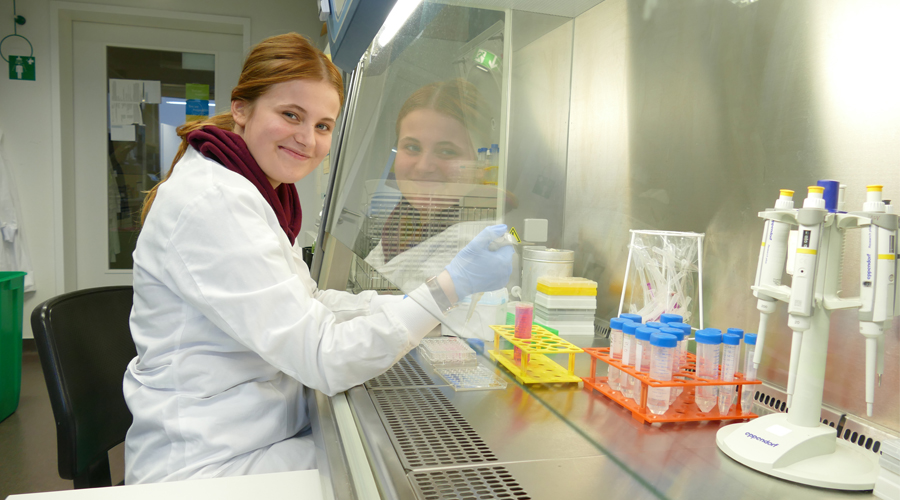“During my voluntary year in science (FWJ), I get a good insight into research – both in the lab and in documentation. This makes it easier for me to think about whether I want to do this later,” says Emelie Dechant. The 19-year-old started her FWJ at MHH in September 2022 in the team of RESIST researcher Prof. Viemann after graduating from Tellkampfschule.
Emelie Dechant really likes her tasks. On the one hand, she collects samples from the paediatric clinic that come from premature babies – these are breast milk, blood, throat swabs and stool – and prepares them so that they can be frozen and included in the Hannover Unified Biobank (HUB) at MHH. On the other hand, she assists with documentation: she transfers information from doctors’ letters and questionnaires into lists. This involves, for example, the children’s illnesses and the medication they receive. For the young woman, it has not yet been decided whether she wants to study medicine or whether she will choose another subject that has to do with research.
Prof. Viemann has had FWY participants in her team several times in the past years. “What I like most about it is that the young people are highly motivated and learn very quickly. They are an essential support in establishing patient cohorts and are therefore a great enrichment,” she says.
Voluntary year in science
A Voluntary Year in Science (FWJ) offers high school graduates the opportunity to accompany a research project of their choice. It doesn’t matter whether they are interested in the medical or natural sciences or in engineering. The application deadline for the next FWJ at the MHH, which starts in September 2023, is 31 January 2022 for students. Research teams that would like to host FWJers can apply at any time. More info and the list of projects you can participate in at MHH are on this homepage: https://www.mhh.de/gb-i/freiwilligendienste/fwj
The photo shows Emelie Dechant in the lab.

